The Best Eczema Creams for African American Skin
This post may contain affiliate links, which means I may earn a small commission at no extra cost to you if you purchase through my links. I only recommend products I truly love and think you’ll vibe with too. Check out our disclosure policy here.
My Personal Battle with Eczema
From struggle to relief: Finding the perfect moisturizer for melanin-rich skin.
I was 26 years old when I noticed dark, ashy patches around my neck. Within days, the irritation had spread to my upper back and chest areas, leaving me scratching desperately for relief. I scratched continuously and so hard that to this day, I’m surprised I don’t have scars from broken skin.
I made an appointment with my dermatologist, who quickly diagnosed eczema. However, his initial recommendations—basic lotions that worked well for his other patients—left my skin thirstier than before. Thus began my 3 year-long journey of trial and error, searching for products that would actually work for my melanin-rich skin…and didn’t break the bank!
The breakthrough finally came at the age of 30. After a particularly brutal spring flare-up, another dermatologist who specialized in skin of color recommended CeraVe’s Eczema Relief Creamy Oil.
Within days of consistent use, the dark, itchy, scaly patches began to lighten, and the constant itching subsided. For the first time in years, I was not feeling self-conscious about the skin around my neck and upper chest especially when I wore tank tops and sundresses.
Even as I write, I still keep my trusty tube(s) of CeraVe close by, especially during seasonal changes. I have a bottle on my desk at work, in my gym bag, and in the car.
Though I’ve discovered other effective products over the years, this cream remains my faithful companion in maintaining healthy skin.
My personal journey inspired me to research and share the best eczema treatments specifically formulated for African American skin, in hopes that others with skin like mine won’t have to endure years of discomfort before finding relief.
Moisture & Melanin: The Science of Treating Eczema in African American Skin
The best eczema creams for African American skin combine powerful moisturizers with skin-barrier repairing ingredients that address the unique challenges faced by darker skin tones.
Eczema, a common inflammatory skin condition characterized by dry, itchy patches, affects approximately 31.6 million Americans—but studies show it disproportionately impacts the African American community, particularly children.
Research indicates that about 19.3% of African American children have some form of eczema, compared to 16.1% of European American children. Even more concerning, Black children are 1.7 times more likely to develop severe eczema than their white counterparts.
Despite this higher prevalence, eczema is often underdiagnosed in darker skin tones, partly because traditional medical education has primarily focused on how skin conditions appear on lighter skin.
Furthermore, eczema manifests differently on melanin-rich skin. Instead of appearing as red, inflamed patches (as commonly seen on lighter skin), eczema on Black skin typically presents as dark brown, purple, or ashen gray patches. This difference in appearance can lead to misdiagnosis or delayed treatment.
Additionally, African American skin tends to have specific characteristics, including lower ceramide levels and higher transepidermal water loss, which can make eczema management more challenging.
Moreover, some common treatments like topical corticosteroids may cause temporary hypopigmentation (lightening of the skin), creating additional concerns for those with darker skin tones.
In light of these challenges, finding the right eczema cream is particularly important for African Americans with this condition.
Therefore, throughout this article, we will explore five of the best eczema creams specifically suited for Black skin, considering factors such as effectiveness, potential for hypopigmentation, and ability to address the unique inflammatory patterns seen in African American skin.
Understanding Eczema in African American Skin
Understanding the unique impact of eczema on Black skin is essential before exploring specific products.
Eczema extends beyond surface (cosmetic) appearance because it functions as a medical condition that affects quality of life, sleep quality and mental health.
The consequences of this condition become particularly severe for African American populations.
How Eczema Appears on Darker Skin Tones
As previously stated in the introduction above, in lighter skin tones, eczema typically appears as red, inflamed patches.
However, on Black skin, the inflammation often presents as dark brown, purple, or grayish patches. This difference in appearance can sometimes lead to misdiagnosis or delayed treatment.
Additionally, African Americans are more likely to develop certain forms of eczema, such as papular eczema (characterized by small bumps on the torso, arms, and legs) and follicular eczema (which appears as small bumps around hair follicles).
These variations can make proper identification even more challenging for healthcare providers not trained in recognizing eczema on darker skin.
Unique Challenges for African American Skin
African American skin faces distinct challenges when it comes to eczema management. Research has shown that Black individuals with eczema often experience:
- More intense itching and dryness
- Higher risk of skin thickening (lichenification) due to frequent scratching
- Greater likelihood of post-inflammatory hyperpigmentation (darker patches) or hypopigmentation (lighter patches) after flare-ups
- Higher levels of inflammation, which may make the condition more treatment-resistant
Furthermore, many conventional eczema treatments were developed without considering their effects on darker skin tones.
For instance, topical corticosteroids, while effective for inflammation, can cause temporary lightening of the skin—an effect that may be more noticeable and concerning for those with melanin-rich skin.
Consequently, finding eczema products specifically formulated for African American skin is not just a preference—it’s a necessity for effective management without unwanted side effects.
The Best Eczema Creams for Black Skin
During a recent visit with my dermatalogist, she hipped me to five exceptional eczema creams that are particularly effective for African American skin.
These products address the unique challenges of eczema on melanin-rich skin while providing the intense moisture and barrier repair needed for relief.
Related read: “Skincare for Dark Skin Tones: Best Anti-Aging Ingredients“
1. CeraVe Eczema Relief Creamy Oil
CeraVe’s Eczema Relief Creamy Oil stands out as my top recommendation for African American skin. This lightweight, non-greasy formula combines 1% colloidal oatmeal (a proven skin protectant) with three essential ceramides that help restore the skin’s natural barrier.
It provides immediate relief without causing hypopigmentation. The formula absorbs quickly, doesn’t leave a white cast, and helps reduce the ashy appearance that eczema often causes on Black skin.
In addition to colloidal oatmeal and ceramides, this cream contains hyaluronic acid and safflower oil, which work together to lock in moisture and soothe irritation. Furthermore, this product is fragrance-free, which is important to note since fragrances are common triggers for eczema flare-ups.
2. La Roche-Posay Lipikar Eczema Soothing Relief Cream
La Roche-Posay’s Lipikar Eczema Cream is another excellent option for African American skin, particularly for those with severe dryness and irritation. It is dermatologist-tested and contains 1% colloidal oatmeal for immediate itch relief, shea butter and the brand’s exclusive prebiotic thermal water.
The cream distinguishes itself by rebalancing the skin microbiome which proves critical for managing eczema on Black skin that often experiences increased bacterial colonization during flare-ups. This formula assists in repairing the skin barrier and delivers sustained hydration for up to 48 hours.
For African American users, this cream is beneficial because it absorbs without leaving any residue, which is particularly important for darker skin tones where white residues are more visible. Additionally, the niacinamide in the formula helps address post-inflammatory hyperpigmentation, also a common concern after eczema flares in Black skin.
3. Eczema Honey Original Skin-Soothing Cream
Eczema Honey’s Original Skin-Soothing Cream delivers relief with familiar natural ingredients for those seeking organic solutions. The formula uses colloidal oatmeal together with organic honey which possesses antimicrobial and healing benefits.
African American skin benefits from this cream because honey effectively addresses hyperpigmentation which often results from eczema flares on darker skin tones. The formula contains aloe vera and grapeseed oil which deliver anti-inflammatory advantages without posing the skin lightening dangers associated with corticosteroids.
The National Eczema Association awarded this cream the Seal of Acceptance because it contains no parabens, sulfates, phthalates or fragrances which makes it safe for use on sensitive skin types. Patients express satisfaction because this product lacks the medicinal odor common in standard eczema remedies.
4. CeraVe Moisturizing Cream
CeraVe’s Moisturizing Cream is not directly advertised as an eczema treatment yet it has become an essential part of eczema management for many African Americans. Three essential ceramides and hyaluronic acid make up this rich, fragrance-free formula which restores the skin barrier and preserves skin moisture.
The ceramide-rich formula benefits African American skin by treating the underlying cause of eczema flares since this skin type naturally produces less ceramide. The product contains MVE Delivery Technology that provides 24-hour hydration by steadily releasing moisturizing components—critical for Black skin which tends to undergo more transepidermal water loss.
This cream absorbs fast even though it’s thick and does not leave any white residue that dark skin tones often struggle with. The formulation prevents clogged pores so it can be applied safely to both the body and face without causing breakouts.
5. Vaseline Clinical Care Eczema Calming Cream
People who want a cost-effective solution can achieve great results with Vaseline’s Clinical Care Eczema Calming Cream because it’s priced affordably. The combination of colloidal oatmeal and triple-purified petroleum jelly in this formula creates a protective barrier that soothes skin irritation.
This calming cream works exceptionally well with African American skin by providing immediate symptom relief and repairing the skin barrier while avoiding any hypopigmentation effects. The formula utilizes a specialized PPAR Activator technology to repair the skin’s barrier function which becomes crucial when dealing with Black skin due to its unique stratum corneum structure.
People with serious and chronic eczema conditions find that this cream offers instant itch relief and noticeable skin texture improvement in just a few days. Lastly, it is a highly effective initial treatment choice for new eczema patients starting their medical journey because of its affordable price.
Important Ingredients to Look For
When selecting an eczema cream for African American skin, certain ingredients deserve special attention. These components not only help alleviate symptoms but also address the unique challenges of eczema on darker skin tones.
Ceramides: The Foundation of Healthy Skin
Ceramides are naturally occurring lipids (fats) that help form the skin’s barrier and retain moisture.
Research has shown that individuals with eczema, particularly those of African descent, often have lower levels of ceramides in their skin.
This deficiency contributes to increased water loss and greater susceptibility to irritants.
Products containing ceramides, such as CeraVe’s line, help replenish these essential components, strengthening the skin barrier and preventing flare-ups.
For African American skin, which may naturally have a different lipid profile, ceramide-rich products can be particularly beneficial in restoring proper barrier function.
Moreover, unlike some active ingredients, ceramides don’t cause hypopigmentation, making them ideal for darker skin tones where changes in pigmentation are more noticeable.
They work gradually but effectively, creating lasting improvement rather than temporary relief.
Colloidal Oatmeal: Nature's Anti-Inflammatory
Colloidal oatmeal has been used for centuries to soothe irritated skin, and for good reason. This finely ground oatmeal creates a protective film on the skin’s surface while providing anti-inflammatory and moisturizing benefits.
For African American skin, which may experience more intense inflammation during eczema flares, colloidal oatmeal offers relief without the side effects associated with corticosteroids.
It helps reduce itching—often reported to be more severe in Black individuals with eczema—and calms the irritation that leads to scratching and subsequent hyperpigmentation.
Additionally, colloidal oatmeal has natural cleansing properties that can help manage the bacterial overgrowth sometimes associated with eczema on Black skin. Look for products with at least 1% colloidal oatmeal for maximum benefit.
Hyaluronic Acid: The Moisture Magnet
Hyaluronic acid is a powerful humectant that can hold up to 1,000 times its weight in water. For African American skin dealing with eczema, which often experiences greater transepidermal water loss, hyaluronic acid is invaluable for maintaining hydration.
Unlike heavier occlusives that can sometimes feel uncomfortable in hot or humid conditions, hyaluronic acid provides moisture without heaviness. This makes it particularly suitable for year-round use, regardless of climate or season.
Furthermore, hyaluronic acid works well in combination with other ingredients, enhancing their effectiveness without increasing irritation risk. It’s gentle enough for use on even the most sensitive areas affected by eczema, including the face and neck.
Shea Butter: African Tradition Meets Modern Science
Shea butter, derived from the nuts of the African shea tree, has been used in traditional African skincare for centuries.
This natural emollient is rich in vitamins A, E, and F and provides deep moisturization while helping to soothe inflammation.
For African American skin, shea butter offers multiple benefits. It helps address the ashy appearance that eczema can cause on darker skin tones while providing anti-inflammatory properties.
Additionally, its composition is similar to the skin’s natural oils, making it particularly compatible with Black skin.
Unrefined shea butter also contains cinnamic acid, which provides mild sun protection—an important consideration for darker skin that may develop hyperpigmentation after sun exposure, particularly in areas affected by eczema.
Application Tips for Maximum Effectiveness
Having the right product is only half the battle—proper application is equally important for managing eczema effectively.
These strategies can help maximize the benefits of your chosen eczema cream, particularly for African American skin.
The "Soak and Seal" Method
One of the most effective techniques for applying eczema creams is the “soak and seal” method, which helps lock moisture into the skin.
This approach is particularly beneficial for African American skin, which may experience greater moisture loss.
To utilize this method:
- Take a short, lukewarm bath or shower (5-10 minutes maximum)
- Gently pat the skin until it’s damp but not completely dry
- Apply your eczema cream liberally within three minutes of bathing
- Pay special attention to areas prone to flares, such as elbow and knee creases
This technique helps trap water in the skin, enhancing the hydrating effects of your chosen cream.
For optimal results, try this method before bedtime, when the body’s natural healing processes are most active.
Frequency Matters: Establishing a Routine
Consistency is crucial when managing eczema on African American skin. Rather than applying treatment only during flare-ups, establishing a daily moisturizing routine can help prevent flares before they begin.
Most dermatologists recommend applying eczema creams at least twice daily—once in the morning and once before bed. However, areas prone to frequent flares or extreme dryness may benefit from additional applications throughout the day–like me.
For working professionals or students who can’t always apply cream during the day, keeping a travel-sized container of your preferred product can make midday applications more convenient. Remember that prevention is easier than treatment when it comes to eczema management.
Addressing Hyperpigmentation After Flares
A common concern for African Americans with eczema is the hyperpigmentation (darkening of the skin) that often remains after a flare subsides. While treating active eczema should be the primary focus, there are ways to address this discoloration as well.
After a flare has completely resolved (no more itching, redness, or scaling), products containing niacinamide or vitamin C can help fade darkened areas. However, these should only be introduced once the skin barrier has healed to avoid further irritation.
Sun protection is also crucial for preventing hyperpigmentation from worsening. Choose a fragrance-free, hypoallergenic sunscreen with at least SPF 30 for areas affected by eczema, even on darker skin tones that have more natural sun protection.
When to Consider Professional Treatment
While over-the-counter eczema creams can provide significant relief, sometimes professional intervention is necessary, particularly for severe or persistent cases.
Consider consulting a dermatologist, preferably one experienced with skin of color if the following occur:
- Your eczema doesn’t improve after 2-3 weeks of consistent treatment
- The affected areas become painful, weepy, or show signs of infection
- Eczema is interfering with sleep or daily activities
- You experience rapid spreading or unusual symptoms
A dermatologist can provide prescription-strength treatments and personalized advice for managing eczema on African American skin, potentially including treatments specifically formulated to avoid hypopigmentation issues that can be more noticeable on darker skin.
Beyond Creams: Lifestyle Factors for Eczema Management
While finding the right cream is essential, managing eczema on African American skin requires a holistic approach.
These lifestyle considerations can complement your topical treatments and help reduce flare frequency and severity.
Fabric Choices Matter
The clothing and bedding that come into direct contact with your skin can significantly impact eczema symptoms. For African American skin, which may be more prone to follicular eczema (eczema occurring around hair follicles), fabric choice is particularly important.
Opt for:
- 100% cotton clothing, especially for items that directly touch affected areas
- Loose-fitting garments that reduce friction against the skin
- Cotton sheets and pillowcases
- Hypoallergenic laundry detergent, free of dyes and fragrances
Avoid:
- Wool, which can be particularly irritating to eczema-prone skin
- Synthetic fabrics like polyester and nylon, which can trap heat and sweat
- Tight clothing that causes friction or restricts airflow
- Heavily dyed fabrics, especially for newly purchased items that haven’t been washed
Consider washing new clothing items before wearing them to remove residual chemicals from the manufacturing process that might trigger flares.
Climate Considerations for Black Skin
Environmental factors significantly influence eczema symptoms, and African American skin may respond differently to various climate conditions. Understanding these patterns can help you adapt your skincare routine as you see fit.
In hot, humid conditions:
- African American skin may be prone to a specific type of eczema called papular eczema, characterized by small, itchy bumps
- Lighter, non-occlusive moisturizers may be preferable to prevent excessive sweating
- More frequent bathing may be necessary, followed by immediate moisturizing
In cold, dry conditions:
- The contrast between heated indoor air and cold outdoor temperatures can be particularly challenging
- Richer, more occlusive creams may be needed to combat increased dryness
- Humidifiers can help maintain indoor moisture levels, reducing flare risk
Year-round, regardless of climate, protecting your skin from extreme temperature changes and maintaining consistent hydration is crucial for managing eczema on African American skin.
Dietary Influences on Skin Health
While research on diet and eczema is still evolving, some evidence suggests that certain foods may influence symptoms, particularly for individuals with both eczema and food allergies or sensitivities.
Some African Americans with eczema report improvement when increasing consumption of the following:
- Omega-3 fatty acids from sources like fatty fish and flaxseeds
- Probiotic-rich foods like yogurt and kefir
- Antioxidant-rich fruits and vegetables
Conversely, some individuals find that reducing intake of common trigger foods helps manage flares.
These often include dairy products, eggs, gluten, and certain tree nuts.
However, elimination diets should only be undertaken with healthcare provider supervision to ensure nutritional needs are still met.
Though not a replacement for topical treatments, dietary adjustments may provide additional support in managing eczema symptoms when combined with appropriate creams and lifestyle modifications.
Best Eczema Creams for African American Skin: Why Specialized Care Matters
Selecting the optimal eczema cream for African American skin demands knowledge of the particular challenges that skin with high melanin content encounters. Initially, the treatment path for Black individuals with eczema includes managing unique flare-up appearances as well as hypopigmentation and post-inflammatory hyperpigmentation concerns.
Moreover, African American skin receives various benefits from each of these five products:
A. CeraVe Eczema Relief Creamy Oil
B. La Roche-Posay Lipikar Eczema Cream
C. Eczema Honey Original Skin-Soothing Cream
E. Vaseline Clinical Care Eczema Calming Cream
In particular, these creams deliver effective treatment solutions for deep hydration needs, barrier repair requirements, natural ingredient preferences, and budget-friendly choices without creating additional problems for darker skin tones.
Without question, consistent application of treatments is essential for the effective management of eczema.
Therefore, maintain a regular skincare schedule which includes proper application of products with the “soak and seal” technique and integrate suitable lifestyle changes to support your topical treatments.
Subsequently, if you’re dealing with long-lasting or intense eczema issues, seek help from a dermatologist who specializes in skin of color.
Despite the difficulties it presents, the correct products and approaches can prevent eczema from dominating your life.
At its core, your skin requires treatment that recognizes its distinct requirements while embracing its natural attractiveness no matter the flare conditions.
Ultimately, products that cater to the specific needs of African American skin help you achieve healthier skin which allows your natural beauty to stand out.
As research continues to advance our understanding of how eczema affects different skin types, we can anticipate even more specialized solutions in the future.
Armed with the knowledge from this guide, you can confidently select products that truly address your skin’s needs today while looking forward to innovations that will enhance your eczema care tomorrow.kin’s unique healing journey.

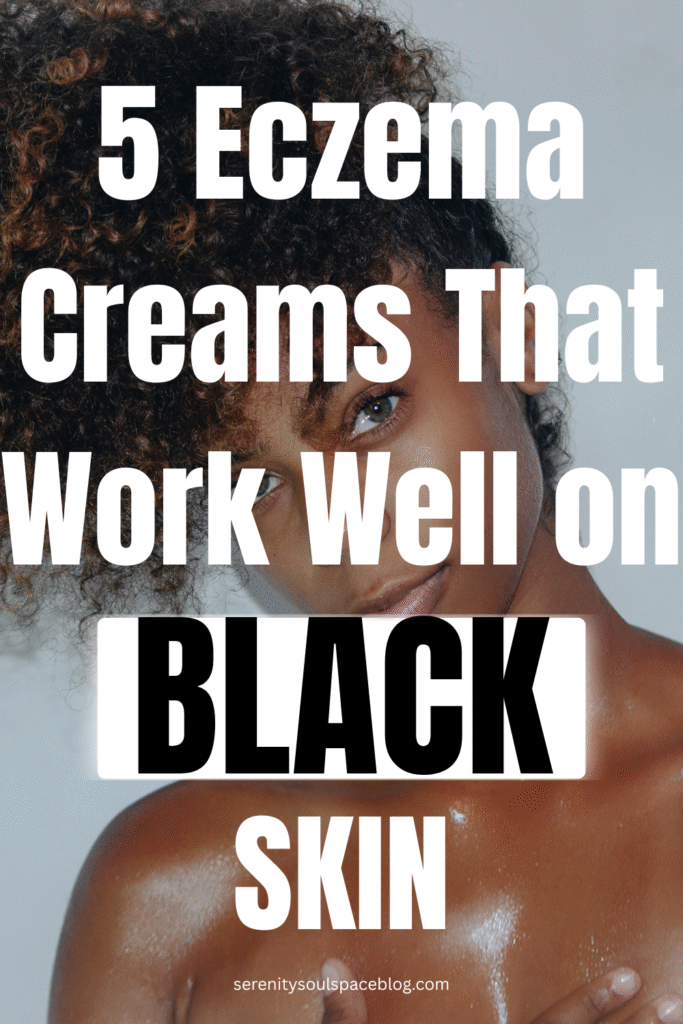

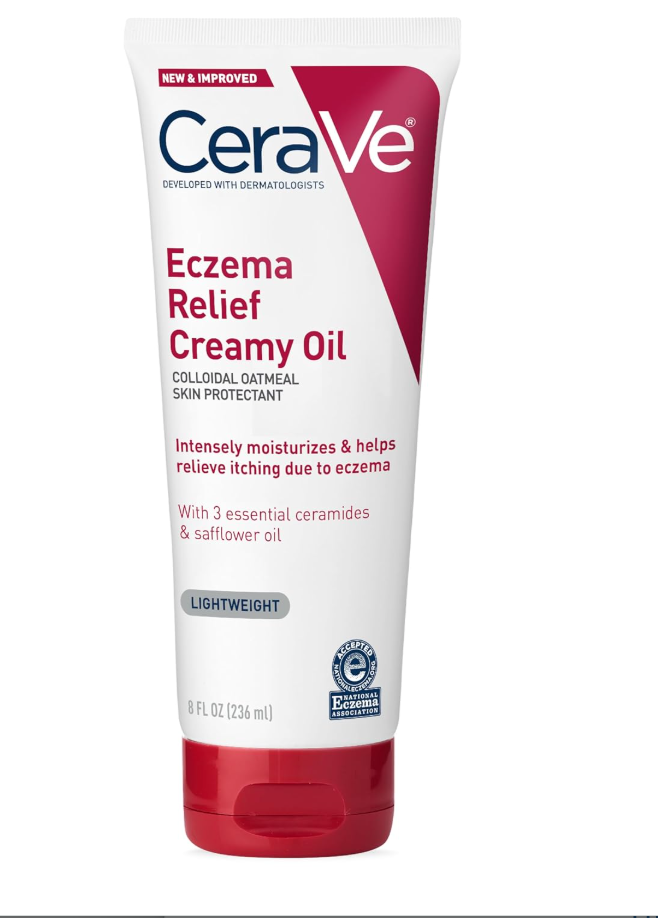

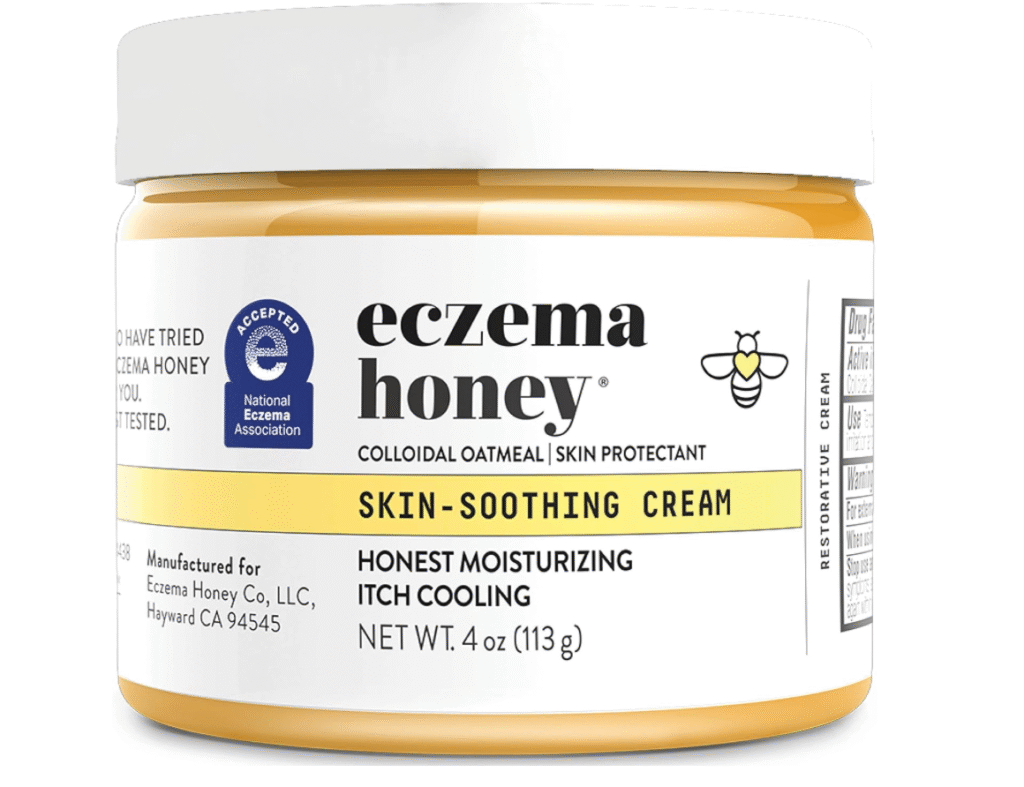
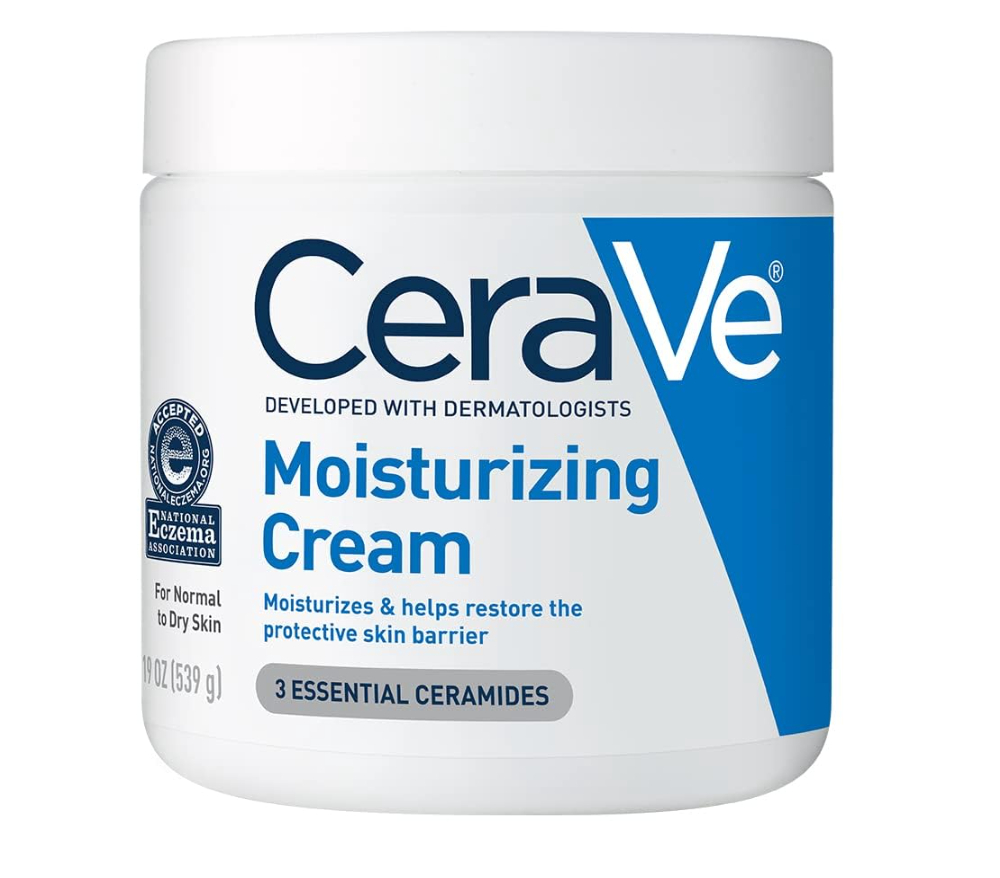
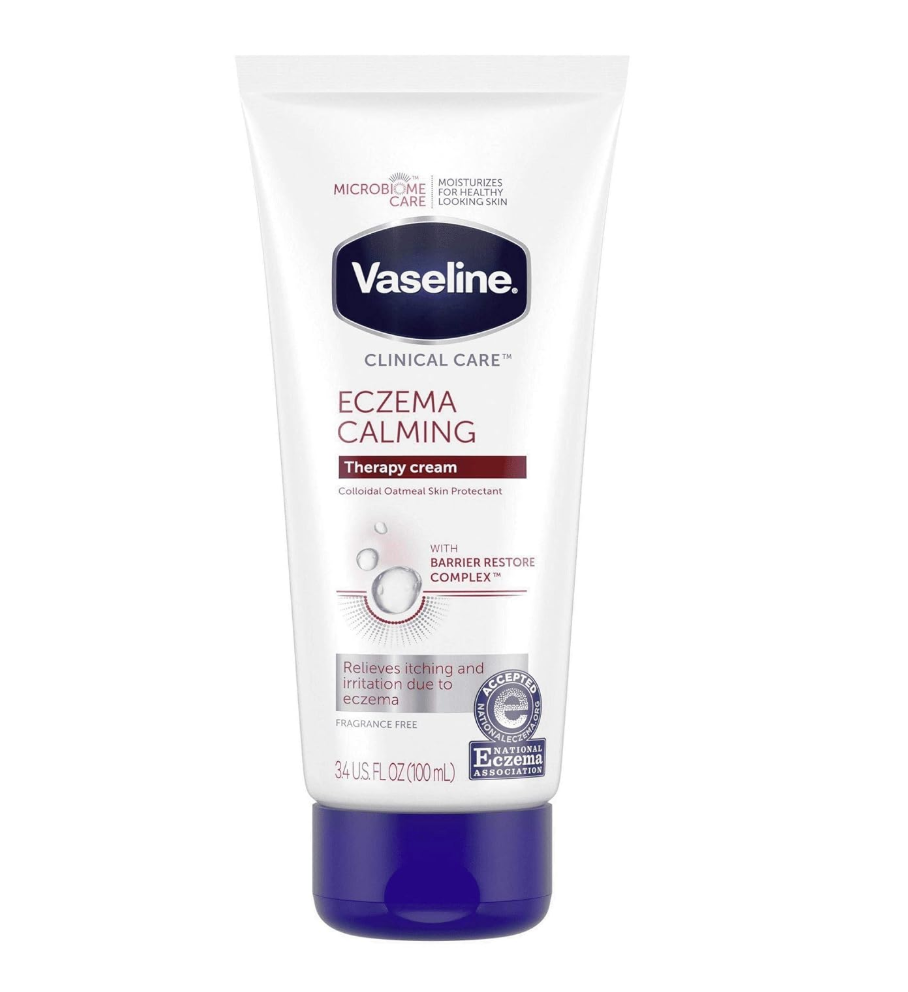








3 Comments
[…] **Related read: The Best Eczema Creams for African American Skin […]
[…] **Related read – The Best Eczema Creams for African American Skin […]
[…] what if there was a single product that could instantly hydrate, balance your skin’s microbiome, and prep your complexion for better product […]